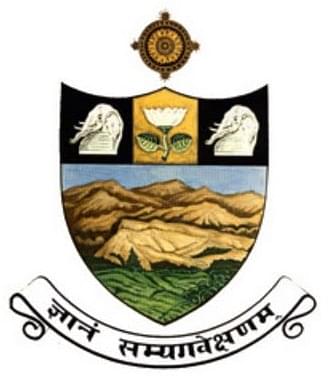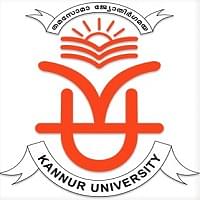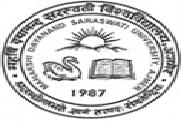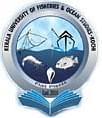Introduction about Ph. D in Marketing Management
A Ph.D. in Marketing Management from best college is an advanced academic
program designed to provide individuals with the knowledge, skills, and
research capabilities necessary to excel in the field of marketing. This
doctoral degree combines elements of marketing theory, consumer behavior,
quantitative analysis, and strategic planning to prepare students for
leadership roles in academia, research institutions, and industry.
Throughout the
program, students explore a wide range of topics related to marketing,
including but not limited to consumer psychology, marketing strategy, brand
management, digital marketing, advertising, market research, and innovation.
They delve into both theoretical frameworks and practical applications, gaining
insights into the dynamics of consumer markets and the strategies employed by
organizations to create value and achieve competitive advantage.
One of the primary
objectives of a Ph.D. in Marketing Management is to advance knowledge and
innovation within the field. Students conduct original research that
contributes to the understanding of marketing phenomena, addresses contemporary
marketing challenges, and informs evidence-based marketing decision-making.
The program
typically emphasizes both qualitative and quantitative research methodologies,
equipping students with the tools to design and conduct empirical studies,
analyze data, and draw meaningful conclusions. Students may also have the
opportunity to engage in interdisciplinary research, drawing on insights from
psychology, economics, sociology, and other related fields.
Graduates of a
Ph.D. program in Marketing Management are prepared for diverse career paths.
They may pursue roles as university professors, researchers, consultants, or
marketing executives in organizations across various industries. With their
advanced understanding of marketing theory and practice, coupled with strong
research and analytical skills, they are well-positioned to make significant
contributions to the field of marketing and drive innovation in marketing
strategies and tactics.
Overall, a Ph.D. in
Marketing Management offers an intellectually stimulating and rewarding path
for individuals passionate about advancing marketing knowledge, contributing to
organizational success, and making a positive impact on consumer behavior and
market dynamics.
What is admission process for Ph. D in Marketing
Management ?
The admission process for a Ph.D. in Marketing Management can vary depending on the
institution offering the program, but here's a general overview of what you
might expect:
v Research Programs: Begin by researching universities or
institutions that offer Ph.D. programs in Marketing Management or closely
related fields such as Marketing, Business Administration, Consumer Behaviour,
or Strategic Management. Look into their faculty expertise, research areas, and
program curriculum to ensure they align with your academic interests and career
goals.
v Meet Requirements: Review the admission requirements for each
program carefully. Typically, this includes holding a master's degree in a
relevant field such as Marketing, Business Administration, Economics,
Psychology, Sociology, or a related discipline. Some programs may accept
exceptional candidates with only a bachelor's degree, especially if they
demonstrate strong academic performance and relevant professional experience.
v Prepare Application Materials: Gather all required application materials,
which usually include transcripts from previous academic institutions, letters
of recommendation, a statement of purpose outlining your research interests and
career objectives, a curriculum vitae (CV) or resume, and any required
standardized test scores. Some programs may also require a research proposal
outlining your intended research topic and methodology.
v Contact Potential Advisors: Reach out to faculty members whose
research aligns with your interests to express your interest in the program and
inquire about potential research opportunities. Having a faculty member willing
to advise you can strengthen your application.
v Submit Application: Complete and submit your application
through the university's online portal by the specified deadline. Be sure to
double-check all requirements and ensure that all materials are submitted
correctly.
v Interview (if applicable): Some programs may require an interview as
part of the admission process. If selected, prepare for the interview by
reviewing your research interests, academic background, and career goals.
v Wait for Decision: After submitting your application, you'll
need to wait for the admissions committee to review your materials. This
process can take several weeks to several months, depending on the program.
v Receive Decision: Once the admissions committee has made a
decision, you'll be notified of your admission status. If admitted, you'll
receive information about next steps, including enrolment deadlines and any
additional requirements.
v Consider Funding: Investigate potential funding
opportunities such as scholarships, grants, or assistantships offered by the
university or external organizations. Funding can help support your studies and
research throughout your Ph.D. program.
v Accept Offer and Prepare for Enrolment: If you receive an offer of admission,
carefully review the terms and conditions, accept the offer by the specified
deadline, and begin preparing for enrolment in the program.
By following these
steps and carefully preparing your application materials, you can increase your
chances of being admitted to a Ph.D. program in Marketing Management and embark
on an exciting journey of advanced study and research in the field.
What is eligibility process for Ph. D in Marketing
Management ?
The eligibility criteria for Ph.D. in Marketing Management can vary depending on the
institution offering the program. However, here are some common eligibility
requirements you might encounter:
Educational
Background: Typically,
candidates must hold a master's degree in a relevant field such as Marketing,
Business Administration, Economics, Psychology, Sociology, or a related
discipline. Some programs may accept exceptional candidates with only a
bachelor's degree, especially if they demonstrate strong academic performance
and relevant professional experience.
Academic
Performance: Candidates are
usually required to have a strong academic record, including a high
undergraduate and/or graduate GPA. The specific GPA requirement may vary by
institution but generally falls within the range of 3.0 to 3.5 on a 4.0 scale.
Standardized Test
Scores: Some institutions
may require applicants to submit scores from standardized tests such as the
Graduate Record Examination (GRE) or the Graduate Management Admission Test
(GMAT). However, this requirement is becoming less common, and many programs
now offer GRE/GMAT waivers or do not require these scores at all.
Letters of
Recommendation: Applicants
typically need to submit letters of recommendation from academic or
professional references who can attest to their academic abilities, research
potential, and suitability for doctoral study in Marketing Management.
Statement of
Purpose: Candidates are
often required to submit a statement of purpose or personal statement outlining
their research interests, academic background, career goals, and reasons for
pursuing a Ph.D. in Marketing Management at the institution.
Research Experience: While not always mandatory, having prior
research experience, such as conducting independent research projects,
publishing academic papers, or presenting at conferences, can strengthen your
application.
English Proficiency: For international students whose native language
is not English, proficiency in English is typically required. This is usually
demonstrated through standardized tests such as the Test of English as a
Foreign Language (TOEFL) or the International English Language Testing System
(IELTS).
Interview (if
applicable): Some programs
may require an interview as part of the admissions process. During the
interview, candidates may be asked about their research interests, academic
background, career goals, and fit for the program.
Additional
Requirements: Depending on
the institution, there may be additional requirements such as a writing sample,
a resume or curriculum vitae (CV), or specific coursework prerequisites.
It's essential to
carefully review the eligibility criteria for each Ph.D. program in Marketing
Management to which you plan to apply, as requirements may vary. Additionally,
reaching out to program coordinators or faculty members for clarification on any
specific requirements can be beneficial.
What is syllabus for Ph. D in Marketing Management
?
Creating a precise
syllabus for Ph. D in marketing management without specific institutional guidelines from best Ph.D
college can be challenging, as syllabi for Ph.D. programs in Marketing
Management tend to vary significantly between universities. However, here's a
general overview of the topics commonly covered in such programs:
![]() Foundations of Marketing Theory:
Foundations of Marketing Theory:
Historical
development of marketing thought
Contemporary
marketing paradigms
Theoretical
frameworks in marketing
![]() Consumer Behaviour :
Consumer Behaviour :
Psychological and
sociological factors influencing consumer behavior
Decision-making
processes and models
Segmentation,
targeting, and positioning strategies
![]() Marketing Research Methods:
Marketing Research Methods:
Quantitative
research methods (e.g., survey design, experimental research)
Qualitative
research methods (e.g., focus groups, in-depth interviews)
Data analysis
techniques (e.g., statistical analysis, qualitative data coding)
![]() Strategic Marketing Management:
Strategic Marketing Management:
Marketing planning
and strategy formulation
Market analysis and
competitive intelligence
Marketing metrics
and performance measurement
![]() Product and Brand Management:
Product and Brand Management:
New product
development and innovation
Brand positioning
and differentiation
Product lifecycle
management
![]() Marketing Communications:
Marketing Communications:
Integrated
marketing communications (IMC)
Advertising and
promotion strategies
Digital marketing
and social media marketing
![]() Marketing Channels and Distribution:
Marketing Channels and Distribution:
Distribution
channel design and management
Retailing and
e-commerce
Channel conflicts
and relationship management
![]() Services Marketing:
Services Marketing:
Characteristics of
services and service marketing challenges
Service quality and
customer satisfaction
Service innovation
and service recovery strategies
![]() International and Global Marketing:
International and Global Marketing:
Globalization and
its impact on marketing
International
market entry strategies
Cross-cultural
marketing issues
![]() Ethics and Social Responsibility in
Marketing:
Ethics and Social Responsibility in
Marketing:
Ethical issues in
marketing research and practice
Corporate social
responsibility (CSR) and sustainability
Marketing ethics in
the digital age
![]() Advanced Topics in Marketing:
Advanced Topics in Marketing:
Emerging trends and
innovations in marketing
Specialized areas
such as healthcare marketing, nonprofit marketing, or luxury marketing
Contemporary issues
in marketing (e.g., data privacy, influencer marketing)
![]() Dissertation Research:
Dissertation Research:
Proposal
development
Data collection and
analysis
Dissertation
writing and defence
This syllabus
provides a broad overview of the topics typically covered in a Ph.D. program in
Marketing Management. However, the specific courses and content may vary
between institutions and may be tailored to align with faculty expertise and
research interests. Additionally, students often have the flexibility to
customize their coursework and research focus based on their individual
interests and career goals.












